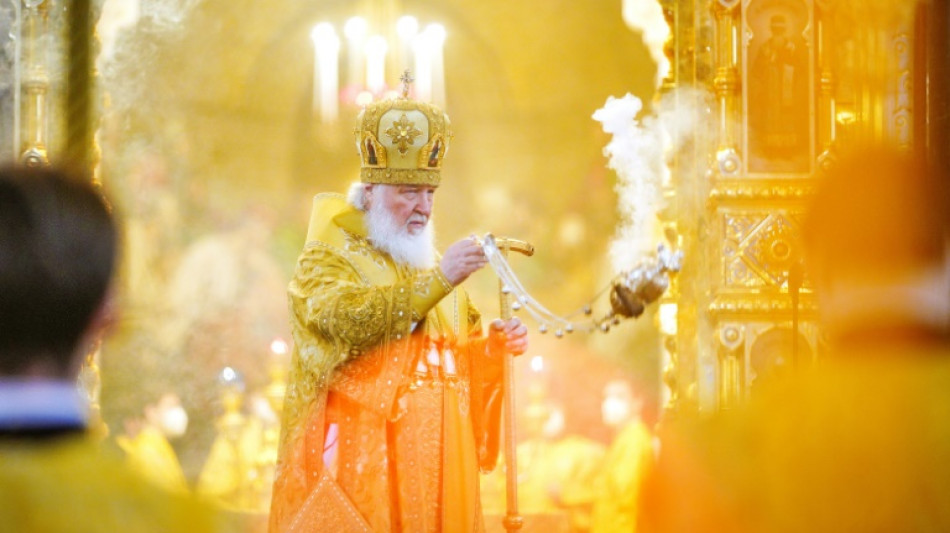

Russia's faithful conflicted over Ukraine war
They all came to light candles for peace but the faithful at a monastery near Moscow were divided on Sunday over whether President Vladimir Putin was right to wage war against Ukraine.
The golden domes and turquoise roofs of the New Jerusalem complex shone brightly under a cold February sun but people's faces were drawn.
The conflict of the last four days in a neighbouring and, like Russia, predominantly Orthodox country was on everyone's minds.
"It's all we think about! We pray there are no victims," said Alexander Pivovarov, a 51-year-old office worker from Moscow.
Andrei Zaitsev, a 38-year-old cleric with a blond beard, said he was "disappointed" in Putin.
He said he could not understand how someone "I usually trust could have started this war".
Zaitsev's words contradicted the official line from Russian Orthodox Patriarch Kirill, who has called Moscow's opponents in Ukraine "evil forces".
- 'Why send in tanks?' -
Inna Filippova, a 49-year-old English teacher, said she was distraught and had not expected a war.
She believed the Russian army would only support the separatist areas in eastern Ukraine that have been in conflict with Kyiv for eight years.
Filippova also said she was worried about the impact of Western sanctions, saying they could hamper travel, medical imports and lead to a "collapse in our quality of life".
But Dmitry Spiridonov, a veteran of the war in Chechnya, said he was in no doubt that the conflict was justified in order to defend the Russian-speaking population of Ukraine.
Spiridonov accused Ukraine's leaders of "genocide", repeating an unfounded claim made by the Kremlin.
"We have to get rid of these nationalists and sort everything out," Spiridonov said.
Two Ukrainian women living in Russia also attended a service at the monastery.
One was from the Ukrainian speaking west, the other from the Russian-speaking east.
They said they were friends but disagreed on this.
"Why send in tanks? My daughter is sleeping in a freezing cellar with a 10-month-old baby," said Tatyana Begun, 54, struggling to control her emotion.
Her friend, Anna Prikhodko, who comes from Donetsk in eastern Ukraine, interrupted her.
"Why did they not leave earlier?" she said.
"You have to chase away the Nazis. They are the ones who caused this war," she said, repeating another false claim about Ukraine's leadership.
The Russian Orthodox Church is firmly behind Putin and Patriarch Kirill frequently justifies police crackdowns on opposition rallies and blesses Russian weapons and troops deployed abroad.
In 2012, he called Putin a "miracle of God".
To justify Russia's invasion, which began on Thursday, Kirill invoked the common historical roots of Russia, Ukraine and Belarus, speaking in the Cathedral of Christ the Saviour in Moscow.
"We have to do everything to preserve peace between our people and at the same time defend our common historic homeland from all external actions which can destroy this unity," he said.
D.Johannsen--MP




